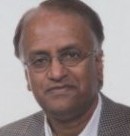After CHOGM Ecstasy, Preparing For Geneva Agony
CHOGM may not have been unblemished ecstasy, but Geneva will be every bit an agony unless the government gets its act together in time for the UNHRCsessions in March next year. Three months are not enough to resolve the contradictions of a thirty year war. The government could possibly make that argument, but it would be a hard sell coming 56 months, after the war ended, of political indifference and inaction towards the Tamils, and inexplicably orchestrated harassment of the Muslims. Still, the government can make a reasonable case for more time and against another censure by: (a) declaring that its honest and sincere intention is to effectively work with the new Northern Provincial Council; (b) indicating immediate measures to address the humanitarian issues in war affected areas; and (c) producing a reasonable timetable to implement the LLRC recommendations. Three months are more than enough to prepare along these lines before the Geneva meeting. In fact the government could work with the NPC Administration and put together a joint plan of action for presentation in Geneva. That would be the right way to respond to what is now a predictable and periodical interrogation in Geneva.
That would also be the right way to respond to the challenge thrown by British Prime Minister David Cameron that Britain would pursue the matter vigourously at the UNHRC if Sri Lanka does not complete before March its own investigation of what happened during the final stages of the war. President Rajapaksa offered a plausible rejoinder that these issues that are the fallouts from 30 years of war cannot be resolved in three months, even though the political origins of the war go back another 30 years before the war started. Further, whether the reply was honest is a different matter given that the government has done nothing for 56 months. Nor could it be considered sincere without a commitment to a plan of action and a firm timeline. Significantly, however, the President did not reject out of hand the British Prime Minister’s call for an inquiry, and is reported to have shown some interest in the experience of the Truth and Reconciliation Commission in post-apartheid South Africa.
But as we have seen time and again during his presidency, President Rajapaksa gives all the indication that he would be doing the right thing but ends up doing the opposite wrong thing. It is as if he is under some compulsion to ignore good advice and allow himself to be swayed by bad advice and make wrong decisions. The incarceration of Sarath Fonseka and the impeachment of Chief Justice Shirani Bandaranayake were instances where President Rajapaksa appears to have gone along with wrong advice after expressing initial reservations. May be it is more difficult to manage a cabinet of extended family members than a cabinet of political ministers. Not that the Sri Lankan formal Cabinet is the ideal forum for objective debate and disinterested advice. The few good ministers in the bloated cabinet are only seenRead More

